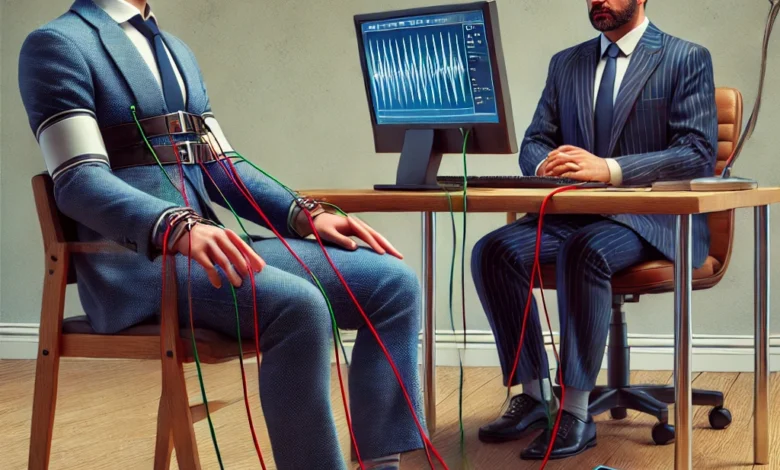What to Expect During a Lie Detector Test UK

If you’re considering undergoing a lie detector test or requesting one for someone else, it’s important to know what the process entails. This article provides an in-depth look at what to expect during a Lie Detector Test UK, covering everything from the initial consultation to the final results. We will also explore the various applications of these tests, their accuracy, and ethical considerations.
What is a Lie Detector Test?
A lie detector test, or polygraph test, is a tool used to assess a person’s truthfulness by measuring physiological responses that are believed to be linked to deception. These physiological changes can include increased heart rate, altered breathing patterns, elevated blood pressure, and changes in skin conductivity. The idea behind the test is that when a person lies, their body responds involuntarily in ways that can be detected and recorded by the polygraph machine.
The test typically involves a series of questions asked by a trained examiner. As the person answers these questions, sensors attached to their body monitor physiological reactions. The examiner then analyzes the data to determine whether the person is being truthful or deceptive based on deviations from their normal responses.
Why Do People Use Lie Detector Tests in the UK?
The growing popularity of Lie Detector Test UK services can be attributed to their use in various scenarios where trust and honesty are paramount. Some common situations where lie detector tests are used include:
1. Relationship Issues
In personal relationships, trust is the foundation of a healthy bond. However, when suspicions of infidelity or dishonesty arise, it can be difficult to move forward without addressing the doubts. Many couples in the UK choose to use lie detector tests to resolve these issues and determine whether one partner has been truthful. These tests provide an objective way to confirm or dispel suspicions, allowing couples to make informed decisions about the future of their relationship.
2. Workplace Investigations
Employers in the UK may turn to lie detector tests when dealing with cases of employee misconduct, such as theft, fraud, or harassment. While polygraph results are not typically used as the sole basis for employment-related decisions, they can provide valuable insights during internal investigations. A lie detector test can help employers assess whether an employee is being truthful when questioned about a specific incident or accusation.
3. Criminal Investigations
In the UK, law enforcement agencies sometimes use lie detector tests as part of criminal investigations to assess the credibility of suspects or witnesses. While polygraph results are not admissible in court, they can still play a role in guiding investigations and determining whether further inquiry is needed. For example, probation officers may use polygraph tests to monitor offenders, particularly in cases involving sexual crimes, to ensure they are adhering to the terms of their release.
What to Expect During a Lie Detector Test UK
The process of undergoing a lie detector test is carefully designed to ensure accuracy and fairness. From the initial consultation to the final analysis, each step plays a crucial role in delivering reliable results. Here’s a breakdown of what to expect:
1. The Initial Consultation
Before the actual test takes place, there is usually an initial consultation. During this phase, the examiner will meet with the person who is being tested (also known as the examinee) to discuss the purpose of the test, the issue being investigated, and the type of questions that will be asked. The consultation also provides an opportunity for the examinee to ask questions about the process and clarify any concerns they may have.
The examiner will explain how the polygraph machine works and will go over the procedure in detail. It is important for the examinee to feel comfortable and informed about the test, as their emotional state can impact the accuracy of the results.
2. Establishing the Baseline
After the consultation, the examiner will begin the process of establishing a baseline for the examinee’s physiological responses. This involves attaching sensors to the person’s body to monitor heart rate, breathing patterns, blood pressure, and skin conductivity.
To create the baseline, the examiner will ask several simple, non-threatening questions—such as the person’s name, age, or place of birth. These questions help establish what the examinee’s normal physiological responses look like when they are answering truthfully. The baseline is critical for comparison purposes, as any significant deviations from this baseline during the test could suggest deception.
3. The Testing Stage
Once the baseline has been established, the actual test begins. The examiner will ask a series of questions, which typically consist of both relevant and irrelevant queries. Relevant questions are directly related to the issue at hand, while irrelevant questions are included to help maintain the baseline of physiological responses.
For example, in a relationship dispute involving suspected infidelity, the examiner might ask, “Have you been unfaithful to your partner?” This would be a relevant question. An irrelevant question could be something unrelated, like, “Do you live in the UK?” By comparing the examinee’s responses to these different types of questions, the examiner can identify any physiological changes that suggest deception.
The examinee is instructed to answer each question with a simple “yes” or “no” to avoid confusion or ambiguity. As they respond, the polygraph machine records their physiological reactions in real-time.
4. Post-Test Analysis
After the testing stage is complete, the examiner reviews the data collected during the session. This analysis involves comparing the examinee’s physiological responses to the relevant questions with their baseline responses. Any significant deviations from the baseline could indicate that the person was being deceptive when answering certain questions.
The examiner compiles the findings into a report, which is then shared with the person who requested the test. Depending on the situation, the report may indicate whether there were signs of deception and provide a detailed analysis of the test’s results.
How Accurate Are Lie Detector Tests?
One of the most common questions people have about lie detector tests is whether they are accurate. Research suggests that polygraph tests have an accuracy rate of approximately 80-90%, but this figure can vary depending on several factors. The skill of the examiner, the quality of the equipment, and the emotional or physical state of the examinee can all impact the results.
It’s also important to note that lie detector tests are not foolproof. False positives (where a truthful person is flagged as deceptive) and false negatives (where a deceptive person shows no significant physiological changes) can occur. For this reason, polygraph tests should not be relied upon as the sole piece of evidence in any investigation, but rather as one tool among many.
Ethical Considerations for Lie Detector Tests in the UK
When it comes to Lie Detector Test UK services, ethical considerations are paramount. It is essential that the test is conducted in a manner that respects the rights of the examinee. Informed consent is crucial, meaning that the person undergoing the test must fully understand the process and agree to it voluntarily.
Furthermore, only trained and licensed professionals should administer lie detector tests. The results must be interpreted responsibly, and individuals should be aware that polygraph results, while informative, are not definitive proof of guilt or innocence.
Read also: Immediate X2 ProAir: The Future of Automated Trading
Conclusion
A lie detector test can be an effective way to uncover the truth in various situations, from personal disputes to workplace investigations and criminal cases. If you’re considering using a Lie Detector Test UK service, knowing what to expect during the process is crucial for making an informed decision. From the initial consultation and baseline measurements to the testing stage and post-test analysis, each step is designed to provide a comprehensive assessment of the examinee’s truthfulness.
While lie detector tests are a useful tool, it’s important to recognize their limitations and use them in conjunction with other methods of investigation for the most accurate and fair results.



